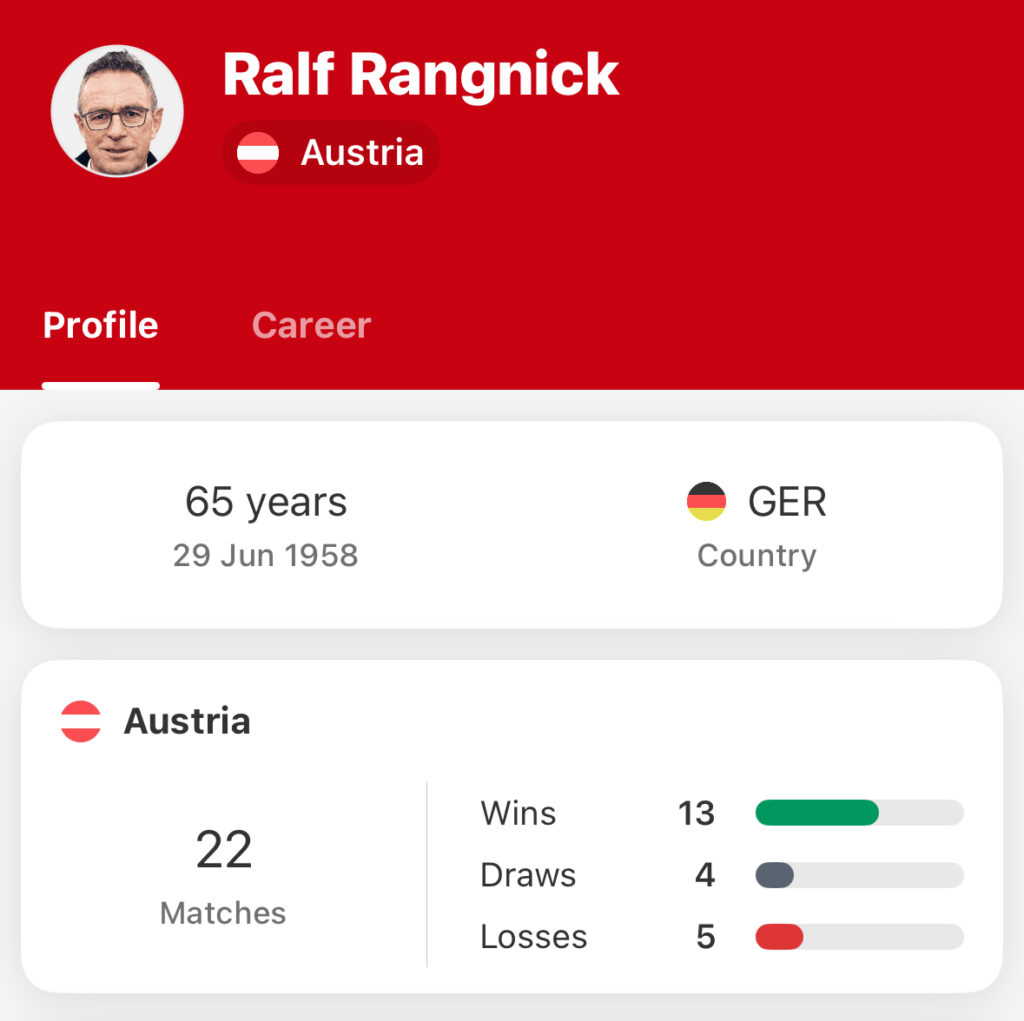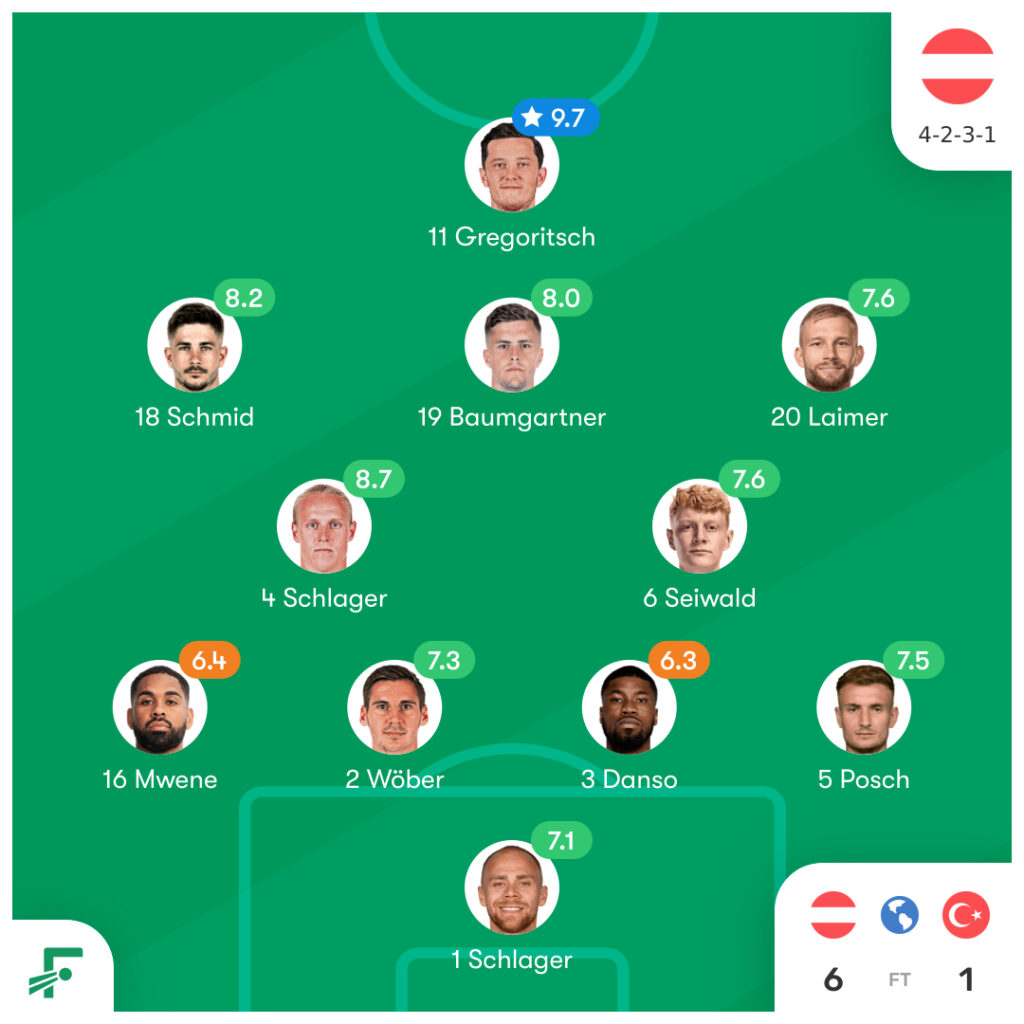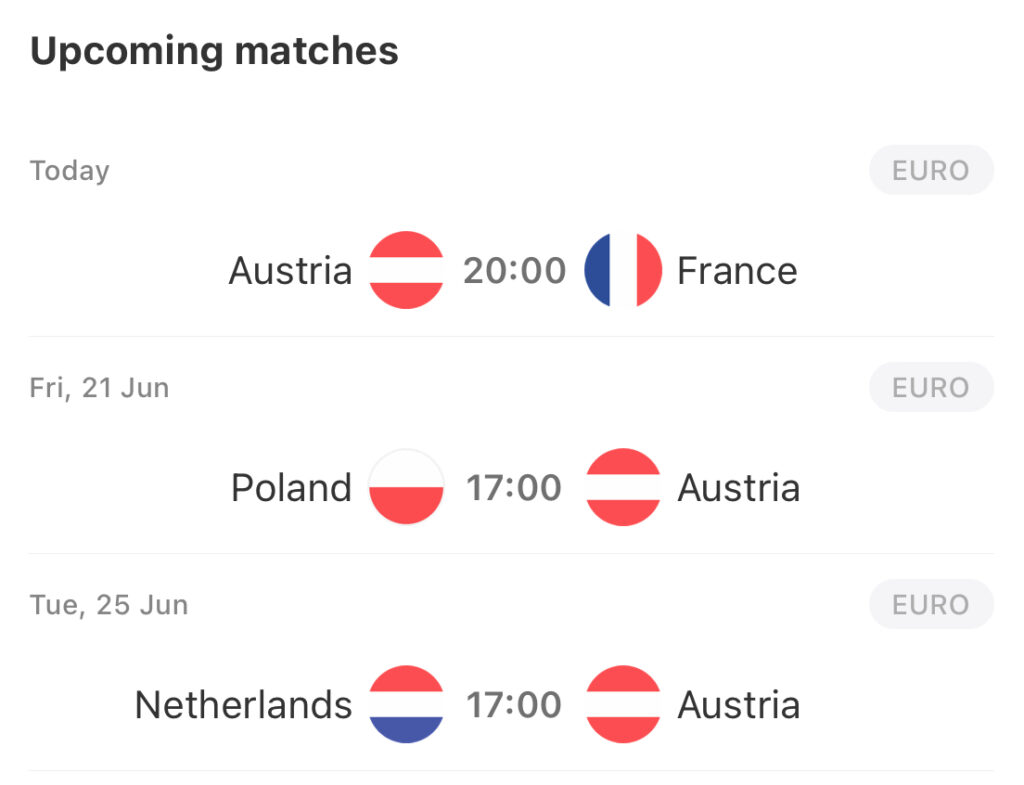Can Austria live up to their Dark Horses tag with Rangnick in charge?
Both Ralf Rangnick and the Austrian national team were at extreme lows when the German was appointed as manager in the spring of 2022. Rangnick was experiencing a tumultuous spell as caretaker boss of Manchester United, while Austria had just failed to qualify for the 2022 World Cup. Yet the appointment has proved to be a masterstroke, with Das Team in fine form heading into the European Championships.
By Luke Bissett
There is little doubt that Rangnick’s reputation was wounded upon his arrival in Austria. The 65-year-old had endured a miserable stint as interim Manchester United boss in the second half of the 2021-22 season, becoming somewhat of a figure of fun as the Red Devils limped to a sixth-place finish.
Austria meanwhile failed to qualify for the 2022 World Cup in torrid fashion – finishing fourth in their qualifying group before losing to Wales in the play-offs semi-finals. In turn, Rangnick adopted a squad devoid of confidence and in dire need of fresh ideas. Performances and results under predecessor Franco Foda had been hugely underwhelming, including a 5-2 defeat to Israel and 4-0 thrashing at the hands of Denmark during the qualification campaign for Qatar.
Therefore, few would have predicted Rangnick’s ensuing tenure to have been quite so successful.
The 65-year-old – heralded as a pioneer of German football – has completely rejuvenated the national team since taking charge in the summer of 2022. His side breezed through EURO 2024 qualifying, winning six out of eight and losing just once. Das Team’s terrific displays have also recaptured the imagination of the Austrian public as attendance figures for national team matches continue to soar.

Fans had grown disgruntled with the often uninspiring and pragmatic style of play enforced by former manager Foda. However, Rangnick quickly imprinted his ‘heavy metal football’ philosophy upon the team, something which promptly had supporters onside once again. This was furthered by the German’s insistence that national team games should be played at different stadiums around Austria, rather than just at the Ernst-Happel-Stadion in Vienna.
Despite a tricky start to Rangnick’s reign, which saw Austria relegated from Nations League Group A, it was clear from the outset that the team were going to benefit from his appointment. Many of the squad had played for club sides Red Bull Salzburg and RB Leipzig, where Rangnick was previously sporting director, and thus were well suited to his demanding playing style.
It was only a matter of time before Rangnick’s practices took full effect. Austria have since developed into one of the most well-drilled sides on the continent. In fact, since Das Team’s relegation from the Nations League in September 2022, they have lost just one of their 16 matches across all competitions (2-3 v Belgium last October). Das Team have been virtually perfect over the last 18 months.
Rangnick has completely transformed the team, implementing an attack-minded style of play. His side are a relentless pressing unit, with their high-octane approach well-suited to international football. Indeed, only Spain (13) averaged more high turnovers per game than Austria in EURO 2024 qualifying (11.9). In true Red Bull style, Das Team won possession on average 57.9 times per game, the third highest in qualification.
It comes as little surprise that the ‘godfather of gegenpressing’ has not budged on his playing style. Austria are extremely aggressive in their counterpress, always seeking to overturn the ball high up the pitch and quickly break on the opposition goal. And the side’s transition-based methods have been a huge success.
They faced just 20 shots on target in qualifying, a tally only England (9), Spain (15), Portugal, and France (both 17) could better. Meanwhile, Austria also boasted the lowest PPDA (opposition passes allowed per defensive action) of any side, allowing 8.3 opposition passes for every defensive action.
A huge feature of Rangnick’s side is their verticality. Das Team waste very little time in progressing the ball forward. Only Belgium (2.6), France (2.4) and Portugal (1.8) averaged more direct attacks then them per game among sides to have qualified for the finals (1.6), while they had the third highest direct speed upfield in qualifying (2.03 metres per second). This has been demonstrated in impressive victories over both Italy and Germany during Rangnick’s reign, alongside a 6-1 thrashing of everyone’s favourite dark horses Türkiye in March.

The nation’s preparations for the finals in neighbouring Germany has been severely hampered by major injuries though. Das Team will be without first-choice goalkeeper Alexander Schlager and his namesake Xaver, the hard-working RB Leipzig midfielder. While more pertinently, they will be missing captain David Alaba through a knee injury, with the Real Madrid star still travelling to Germany as a ‘non-playing captain’.
Austria recorded their best-ever finish at EURO 2020, being knocked out by eventual winners Italy in a narrow extra-time defeat in the Round of 16, and Rangnick will be hoping to improve even further on that back in his homeland. The nation recently received the boost of the 65-year-old reaffirming his commitment to the role amid rumoured interest from Bayern Munich.
They have also been drawn in the perceived ‘group of death’ Group D, alongside France, Netherlands and Poland. Although, a third placed finish may be enough given there are four ‘best third-placed teams’ spots up for grabs. Das Team have been nominated as potential dark horses for the competition, but we’ve been here before with Austria.
Yet with the side at their strongest – and most entertaining – in a generation under Rangnick, this time just feels a little different.

(Cover image from IMAGO)
You can follow every game from Euro 2024 live with FotMob — featuring deep stats coverage, xG, and player ratings. Download the free app here.